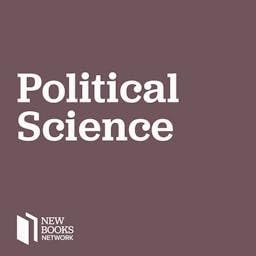Political Scientist Michael Illuzzi has a fascinating new book on peoplehood in the United States, focusing on different political actors at different crucial points in American history, and how the “story” of American peoplehood has been told. This idea of “peoplehood” is not necessarily new, since it brings with it a connection to the country where one is a citizen. But for the United States, this concept has been defined and redefined over more than 250 years and often connects back to the promise of the Declaration of Independence, where the commitment to equality was articulated, but has never been fully recognized or achieved. Part of what Illuzzi is doing in Mending the Nation: Reclaiming We The People in a Populist Age is explaining, through a number of case studies, the difference between what are called “mending stories” and “bleaching stories”—those narratives that design a country that is more inclusive, that explain the past but also work towards mending earlier injustices, in contrast to those narratives that choose to erase historical injustices and inequalities and, in the process, also define the American fabric as exclusionary. This framework, drawing out these different approaches to narratives about American peoplehood, is vitally important as we find ourselves at this particular inflection point, with daily debates and armed conflicts over who is and isn’t allowed to be considered an American. The case studies at the heart of Mending the Nation: Reclaiming We The People in a Populist Age include the Civil War and Abraham Lincoln, Mayor Samual Jones (of Toledo) and the integration of immigrants at the turn of the century, Franklin D. Roosevelt and the New Deal, Martin Luther King Jr’s coalition building beyond the Civil Rights Movement, Black Panther Leader Fred Hampton’s Rainbow Coalition in Chicago in the 1960s, and finally the Poor People’s Campaign led by Rev. Dr. Liz Theoharis and Rev. Dr. William Barber II. In each case, Illuzzi examines different kinds of opposition to more authoritarian, more divisive, or more oppressive approaches, in the speeches and in the coalitions that are being built by those leading towards mending narratives. Part of the analysis is also about how political coalitions are expanded—especially in ways that may be unexpected, when common issues (like poverty, or police brutality, or healthcare access) transcend ethnic, racial, or even political boundaries and groupings. This is a beautifully written discussion of the idea of the United States, and the ways in which politics, race, ethnicity, and class are all woven together within the broader fabric of a country “dedicated to the proposition that all men are created equal.” Mending A Nation: Reclaiming We The People in a Populist Age is particularly important in helping us to think about and possibly act on “from many, one” in the age of divisive populism and discrimination. Lilly J. Goren is a professor of political science at Carroll University in Waukesha, WI. She is co-host of the New Books in Political Science channel at the New Books Network. She is co-editor of The Politics of the Marvel Cinematic Universe Volume I: The Infinity Saga (University Press of Kansas, 2022), and of The Politics of the Marvel Cinematic Universe Volume II: Into the Multiverse (University Press of Kansas, 2025) as well as co-editor of the award winning book, Women and the White House: Gender, Popular Culture, and Presidential Politics (University Press of Kentucky, 2012). She can be reached @gorenlj.bsky.social Learn more about your ad choices. Visit megaphone.fm/adchoices Support our show by becoming a premium member! https://newbooksnetwork.supportingcast.fm/political-science
続きを読む
一部表示
 1 時間
1 時間 46 分
46 分 2026/01/2255 分
2026/01/2255 分 1 時間 23 分
1 時間 23 分 1 時間 26 分
1 時間 26 分 56 分
56 分 42 分
42 分 1 時間 15 分
1 時間 15 分
